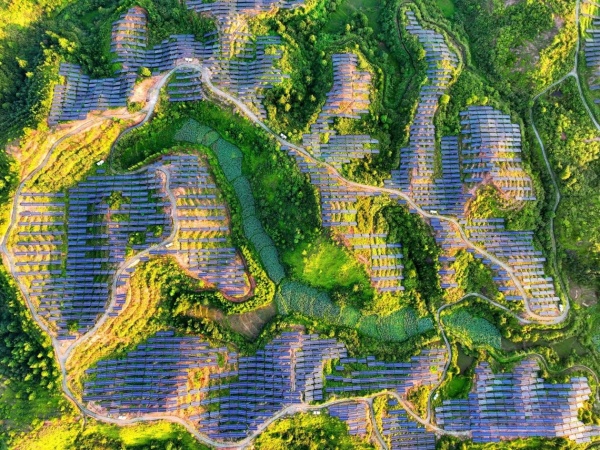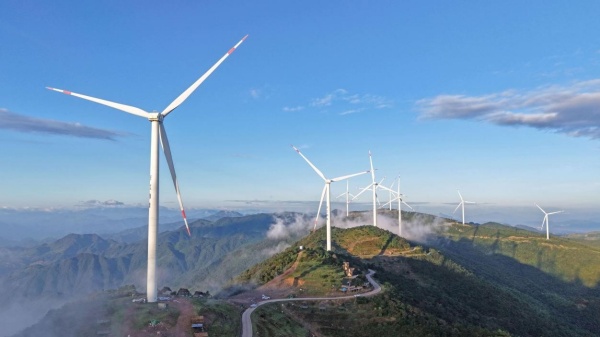
Egrets forage and rest in a wetland in Suqian, east China's Jiangsu province, Aug. 4, 2025. (Photo/Zhang Lianhua)
In South Africa's Northern Cape Province, communities are adapting China's eco-village model to transform local resources into sustainable cultural and tourism offerings.
Uzbekistan's Nukus region has implemented a Sino-Uzbek pilot project combining solar power with smart irrigation for cotton farming, restoring saline-alkali soil while increasing agricultural productivity.
Peru's Chancay Port has established a wildlife conservation center that carries out regular protection of marine and wetland ecosystems.
As countries and regions are recognizing and adopting China's experience in advancing ecological progress, the principle that "lucid waters and lush mountains are invaluable assets" is offering Chinese solutions for global environmental sustainability.
Industrialization has generated unprecedented wealth throughout human civilization, yet simultaneously caused significant ecological damage. The enduring challenge lies in reconciling development with environmental protection.
China's guiding concept demonstrates the interdependence of economic growth and ecological conservation. It emphasizes that economic development must not come at the cost of depleting resources and degrading the environment, and that environmental protection need not preclude economic progress.
Attila Grandpierre, research president of the Budapest Center for Long-Term Sustainability, believes the concept transcends narrow utilitarianism and short-termism. Drawing from the ecological wisdom of China's rich traditional culture, it reflects deep concern for the idea that humans and nature form a community of life, imbued with profound philosophical meaning.
Protecting the environment is protecting productivity, and improving the environment is boosting productivity. Achieving a green transition in economic and social development is not only essential for building an ecological civilization but also injects strong momentum into economic growth. In recent years, China's green industries, including new energy vehicles, photovoltaics, and wind power, have provided a steady driving force for high-quality development.
While promoting its own comprehensive green transformation, China has also actively advanced international green cooperation, working with over 100 countries and regions on green energy projects, supporting the free flow of high-quality green technologies and products, supplying over 80 percent of the world's photovoltaic modules and 70 percent of wind power equipment, and helping reduce the average levelized cost of wind and solar power projects worldwide by more than 60 percent and 80 percent respectively.
Erik Solheim, former United Nations Under-Secretary-General, believes China's innovative practices and global demonstration effects in green development and environmental protection provide vital impetus for the world's green transition.
As the largest developing nation, China has proven that rapid development and environmental protection are compatible. Its anti-pollution campaigns have yielded visibly bluer skies, greener landscapes, and cleaner waters, translating ecological progress into tangible improvements in quality of life.
Aymara Gerdel, director of the Venezuelan Center of Studies on China, noted that China's climate policies prioritize human welfare while advancing equitable, efficient green development - a carbon-reduction model with global significance.

Photo shows a photovoltaic power station in Zhaohua village, Guangchang county, Fuzhou, east China's Jiangxi province. (Photo/Zhu Haipeng)

Photo shows a wind farm in Pan'an county, Jinhua, east China's Zhejiang province. (Photo/Wang Huabin)